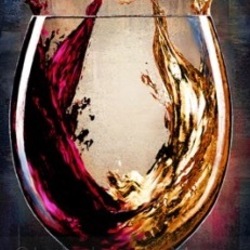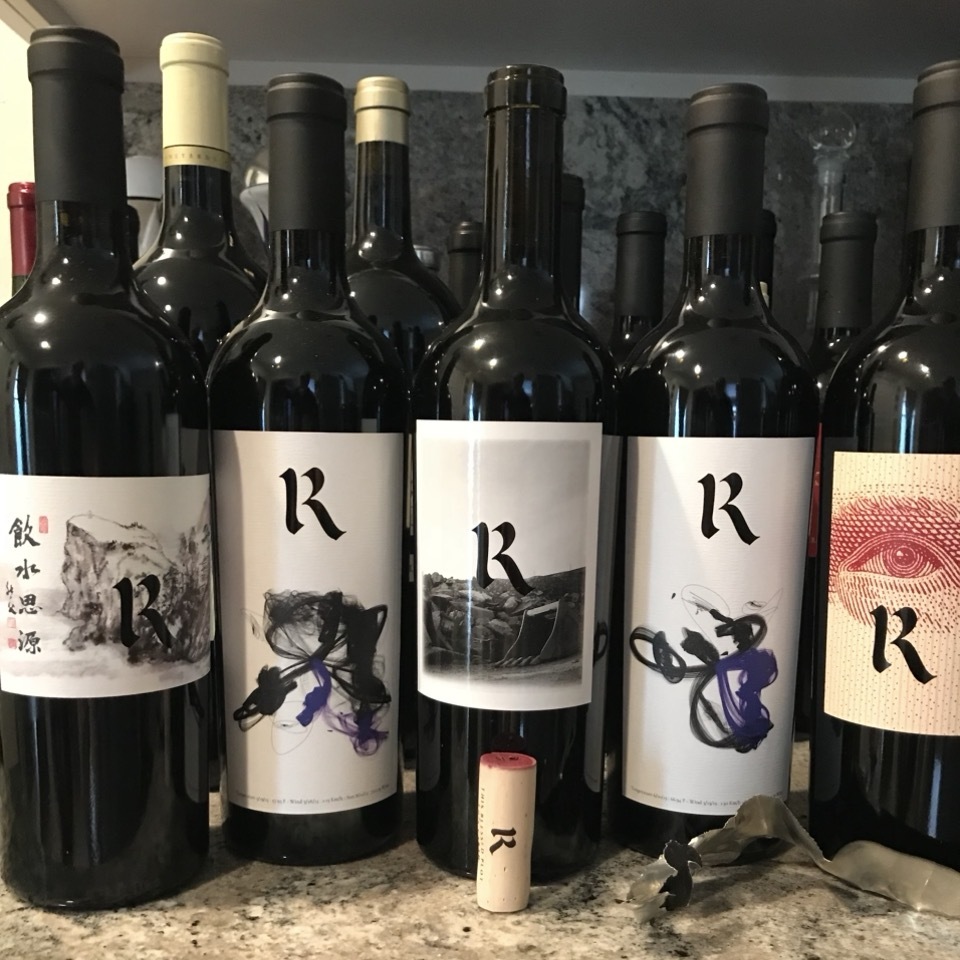Maréchal
Catherine et Claude Maréchal
Gravel Côte d'Or Bourgogne Pinot Noir
The Côte d'Or appelation includes both Beaune and Nuits. But this mostly remind me of Nuits with dark berry fruit and dark color. Young but quite drinkable with the right (light) food pairing. Quite a lot of fun compared to the usual Bourgogne selection here in Sweden. — 5 years ago
Domaine Cazes
Le Canon du Maréchal Syrah Grenache 2016
Wonderful surprise! Well balanced rich after taste pleasant berry less acidity. — 8 years ago
Catherine et Claude Maréchal
Les Chaillots Ladoix Pinot Noir
Drank with Mayon while watching Yellowstone. Really good! Easy drinker, light, not sweet. — 3 years ago
Catherine et Claude Maréchal
Les Pimentiers Savigny-lès-Beaune 1er Cru Pinot Noir 2015
2015 para repetir — 5 years ago
Maréchal
Beaujolais Nouveau Gamay 2018
It was perfect to complement Thanksgiving dinner; I do prefer to drink it with food since it is a young wine. Also definitely drink the whole bottle in a day because it does not keep well! — 7 years ago
Château La Pierre du Maréchal
St. Emilion Red Bordeaux Blend 2000
Robust and velvety, with braised wild boar shanks — 4 years ago
Catherine et Claude Maréchal
Gravel Bourgogne Pinot Noir
Fruity but not overpoweringly, rich feeling in the mouth — 5 years ago
Maréchal
Crémant de Loire Chenin Blanc
Tasty rose — 7 years ago
Bollinger
Brut Rosé Champagne Blend
On the nose; bright cherries, ripe strawberry & cranberry reduction, black raspberries, raspberries, watermelon near the rhine, mixed orange citrus, oyster shells, baguette crust, understated volcanic minerals, chalk, saline, fresh pink roses and florals. The body is full and a shade gluey. The fruits are ripe, rich and candied/gummy in style. Bright cherries, black cherries ripe strawberry & cranberry reduction, black raspberries, raspberries, watermelon near the rhine, mixed orange citrus spray, saline, seashells, soft grey volcanic minerals, lots of grippy powdery razor sharp chalkiness, baguette crust, fresh pink roses & florals, acidity that is round and well done, understated delicate micro bubbles and a long, well balanced, rich finish. The reason why I prefer the Billecart Salmon, Ruinart & Laurent Perrier over the Bollinger is it’s a little too sweet for me. Photos of; the House of Bollinger, cellar, headstone that marks one of their vineyards and their harvest staff picking perfectly manicured rows. Producer notes and history...Bollinger has roots dating back to 1585 when the Hennequins, one of the Bollinger founding families, owned land in Cramant. Before the Bollinger house was founded in the 18th century, the Villermont family practised wine making, though not under their family name. In 1750, Villermont settled at 16 rue Jules Lobet, which would eventually become the head office for Bollinger. In 1803 Jacques Joseph Placide Bollinger was born in Ellwangen, in the kingdom of Württemberg. In 1822, he moved to Champagne and found work at the house of Muller Ruinart, which no longer exists. Many other Germans came to settle in the Champagne region, including Johann-Josef Krug and the Heidsiecks, who founded a house that would become; Charles Heidsieck, Piper Heidsieck, Veuve Clicquot and others. The Champagne house Renaudin Bollinger was founded in 1829 in Aÿ by Hennequin de Villermont, Paul Levieux Renaudin and Jacques Bollinger. The partners agreed that the Villermont name would not be used on the labels, hence the house name Renaudin Bollinger. Starting when Jacques Bollinger married Charlotte de Villermont, the house has been managed by the Bollinger family. Even though Paul Renaudin passed without an heir to his name, the label did not become solely Bollinger until the 1960s. Founder Jacques Joseph Bollinger married Charlotte de Villermont. The had a daughter, who had two sons Joseph and Georges. These sons took over the company in 1885 and began expanding the family estate by purchasing vineyards in nearby villages. The sons also developed the image of the brand, such as when Bollinger became the official supplier to the British court and received a Royal Warrant in 1884 from Queen Victoria. In 1918, Jacques Bollinger, the son of Georges, took over the company and married Emily Law de Lauriston Boubers, known as "Lily". Jacques expanded the facilities by building new cellars, purchasing the Tauxières vineyards, and acquiring the assets of another Champagne house on Boulevard du Maréchal de Lattre de Tassign, where Bollinger's offices are presently located. When Jacques Bollinger died in 1941, Lily Bollinger took over. Lilly expanded production with the purchase of even more vineyards, but is best known for traveling the world to market the brand. Bollinger was modernized under the Claude d'Hautefeuille, who acquired additional vineyards and further developed the brand internationally. Following Claude, his cousin Christian Bizot took over the Bollinger house and expanded world distribution. Their Winemaker also used several James Bond film movies to market the brand. Bollinger is fermented in oak barrels. At harvest, only the first pressing is used in the cuvée, unless the vintage is of particularly high quality, when a second pressing of Chardonnay will be used. Bollinger sells the second pressing, the tailles. Bollinger utilizes two pressing houses (Louvois and Mareuil sur Aÿ) to ensure a short distance between harvest location and pressing. When possible, grapes purchased from growers are pressed by the house. When the pressed wine arrives, the Bollinger cellar master analyzes the musts for quality, discarding and selling off those that do not meet the house standards. The first fermentation is done cru by cru, variety by variety, preserving many of the unique characteristics of the vines location. Bollinger is one of the few Champagne houses to do some first fermentation in oak barrels. Wines that will not hold up to first fermentation in wood are vinified in vats. Bollinger Champagnes usually undergo malolactic fermentation. The Grande Année 1995 did not undergo malolactic fermentation. Bollinger uses only traditional yeast. They’ve decided that new generations of yeasts (agglomerated yeasts and encapsulated yeasts) do not produce satisfactory Champagne. Vintage wine, including all wine to be used in a Grande Année, is fermented in small oak barrels, sorted according to origin and variety. Both oak and stainless steel are used for non-vintage wine. Bollinger also has the last Cooperage in Champagne. The oak barrels are all at least four years old, avoiding the transfer of tannins to the wine. The wines are only lightly filtered. All Bollinger Champagne spends a long time on its lees, contributing to the complex flavour of the wine. Though appellation d'origine contrôlée rules only require 12 months on lees for non-vintage Champagne and for vintage (NV wines, 15 months from tirage to release and vintage wines must be kept for 36 months from tirage to release), Bollinger ages their non-vintage wines three years, and the vintage wines from five to eight years. The Grande Année and R.D. Champagnes are riddled by hand. At disgorgement, Bollinger wines are given a low dosage, to maintain the balance and flavor of the wine. The company uses 6-9 grams of sugar per liter for the Special Cuvée and La Grande Année. The extra-brut R.D. is dosed between 4 and 5 grams. After dosage, the wines are aged an additional several months, resting for a minimum of three months before shipping. Bollinger owns nearly 160 hectares of vines, producing more than 60% of its supply. The vines are largely Pinot Noir, specifically clone 386. Bollinger believes this clone ensures good quality as well as highlighting characteristics of the various terroirs. The vineyards also include some rare ungrafted French vines from before the phylloxera. Bollinger owns vines all over Champagne, including the crus of Aÿ, Bouzy and Verzenay. — 8 years ago

I figured a real keyboard needed to be involved, thanks for the insight.





Craig Daniels
Delicious Maréchal Foch! Dark but not too jammy, blackberry, black cherry and earthy characters, spice, smoke, and a lingering vanilla undertone. Leathery, a little like licking a saddle. Get it while you can; this wine is not foching about! — 3 months ago